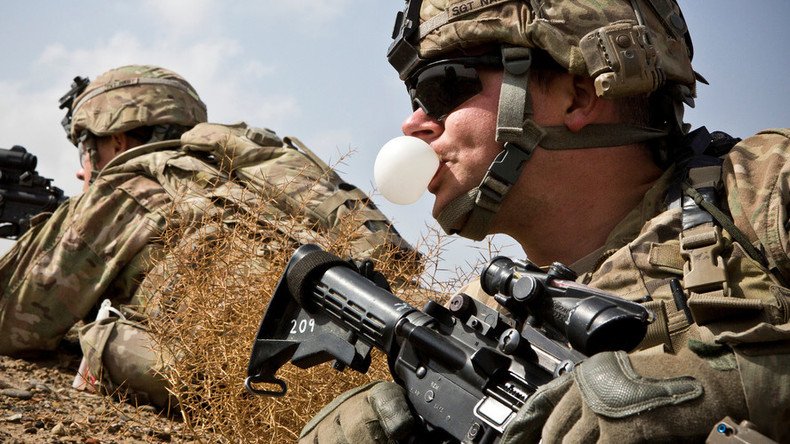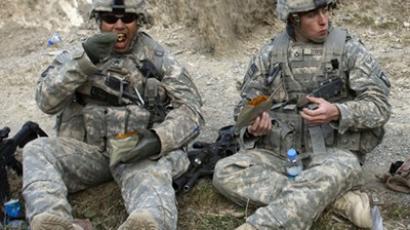Fat vs fair: Pentagon mulls new obesity standards for soldiers

Rising concerns about US soldier obesity are pushing the Pentagon to rewrite fitness standards for the first time in 14 years. New rules are expected by the end of the year, but there is much disagreement about what they should be.
Obesity rates have soared among active-duty personnel, from 1.6 percent in 2001 to 5.3 percent in 2010, according to the Department of Defense health records. The new “body composition rules” are intended to set a minimum baseline standard across the entire US military, while letting the individual branches – the Army, Air Force, Navy and the Marine Corps – set their own, more rigorous standards.
“The question is: Is that the best way for us to assess body composition?” one Pentagon official told Military Times on condition of anonymity. “What was good in 2002 might not be the best we can do in 2016.”
The official described the internal review as “controversial.” Senior Defense Department officials are still discussing potential changes to the fitness standard, which will then have to be coordinated with heads of individual service branches. So far, there is “disagreement on what right looks like,” the official said.
Good news: #obesity trends drive U.S. military to redefine basic fitness standards https://t.co/HHVMNyBt4wpic.twitter.com/1iZ8FSMenU
— Sheree Queen Bryant (@SQueenBryant) August 8, 2016
Current rules require members of the military to maintain body fat at 26 percent or less for men and 36 percent for women. The services enforce the rule by “tape test,” measuring the troops’ necks and abdomens in what has been roundly criticized as inaccurate and low-tech.
In 2013, Military Times challenged the “tape test” by putting 10 active-duty soldiers in a hydrostatic “dunk tank,” considered one of the most accurate methods of assessing body fat composition. The tape test was “wrong every time,” and in nine out of 10 cases indicated a body fat percentage far higher than the dunk tank. The worst discrepancy was 66 percent, the paper noted.
The challenge before the Pentagon is to devise a rugged yet reliable technology to distinguish between soldiers who are actually unhealthy and those who “have nontraditional body types but are otherwise fit,” Military Times wrote.
While not enthusiastic about the tape test, soldiers that spoke to the paper are uniformly in favor of keeping a strict fitness standard.
“The measurements we use are unbelievably unreliable, and some people's careers are determined by these measurements,” said Hospital Corpsman 2nd Class Christopher Ward, criticizing the tape test. “Being overweight or obese is a liability to the person and the people around them in an emergency situation.”
Command Sergeant Major John Troxell, the senior enlisted adviser to the chairman of the Joint Chiefs of Staff, pointed out that 75 percent of young Americans do not qualify for military service because they are “simply too fat to meet basic standards,” while obesity among the active-duty personnel reduces readiness and increases healthcare costs.
“Any change to our policy has to take into account, first and foremost, that we’ve got to have men and women who can perform their duties... under the worst conditions on their worst day of their life, whether it’s in combat, whether it’s a fire on a ship, whether it’s on the flight line where there’s an emergency,” Troxell said.
An actual accounting of how many US troops are assigned to remedial fitness training or discharged on grounds of being too fat to serve is difficult to come by. The Army declined to provide any information to Military Times, the Navy cited computer trouble, and the Air Force said the program was run on the level of individual bases, so no service-wide numbers were available.
Members of the US Marine Corps who fail the fitness standard are assigned to the Body Composition Program. Enrollment in the BCP has ranged between 1.1 percent and 1.4 percent annually, according to data provided by the USMC. Since 2011, no more than 185 Marines have been discharged in any single year for being too fat to serve.
The Pentagon’s new body composition rules are expected later this year.













